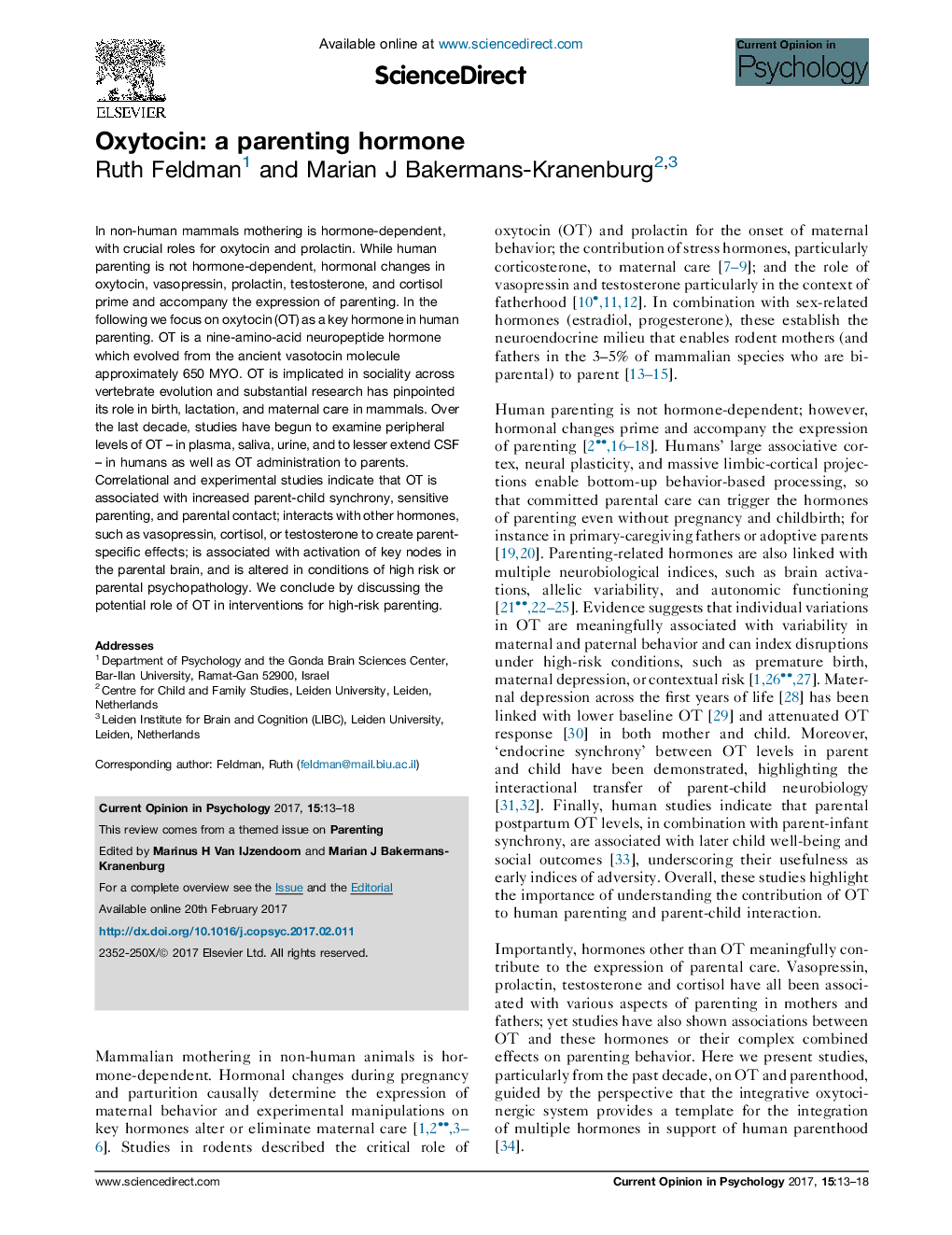| Article ID | Journal | Published Year | Pages | File Type |
|---|---|---|---|---|
| 5033572 | Current Opinion in Psychology | 2017 | 6 Pages |
â¢The expression of parenting in both human and non-human mammals is affected by hormones.â¢Oxytocin provides a neuroendocrine template for the effects of multiple hormones on parenting.â¢Oxytocin measured across pregnancy and the postpartum explains variance in parenting behavior.â¢Nasal administration of oxytocin influences neural responses to infant signals such as crying and laughter.â¢Childhood experiences and attachment style may moderate the effects of oxytocin administration.
In non-human mammals mothering is hormone-dependent, with crucial roles for oxytocin and prolactin. While human parenting is not hormone-dependent, hormonal changes in oxytocin, vasopressin, prolactin, testosterone, and cortisol prime and accompany the expression of parenting. In the following we focus on oxytocin (OT) as a key hormone in human parenting. OT is a nine-amino-acid neuropeptide hormone which evolved from the ancient vasotocin molecule approximately 650 MYO. OT is implicated in sociality across vertebrate evolution and substantial research has pinpointed its role in birth, lactation, and maternal care in mammals. Over the last decade, studies have begun to examine peripheral levels of OT - in plasma, saliva, urine, and to lesser extend CSF - in humans as well as OT administration to parents. Correlational and experimental studies indicate that OT is associated with increased parent-child synchrony, sensitive parenting, and parental contact; interacts with other hormones, such as vasopressin, cortisol, or testosterone to create parent-specific effects; is associated with activation of key nodes in the parental brain, and is altered in conditions of high risk or parental psychopathology. We conclude by discussing the potential role of OT in interventions for high-risk parenting.
